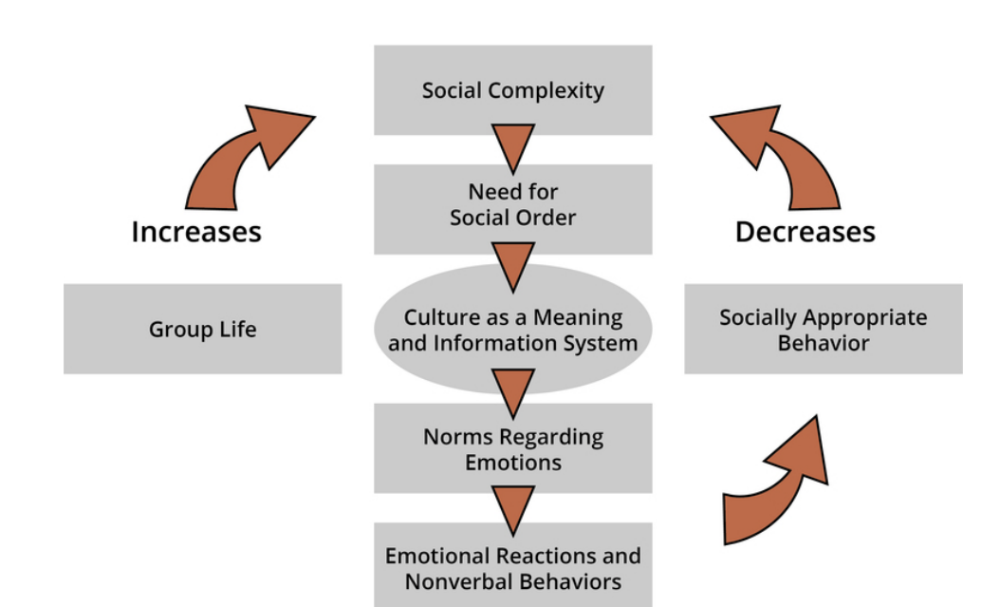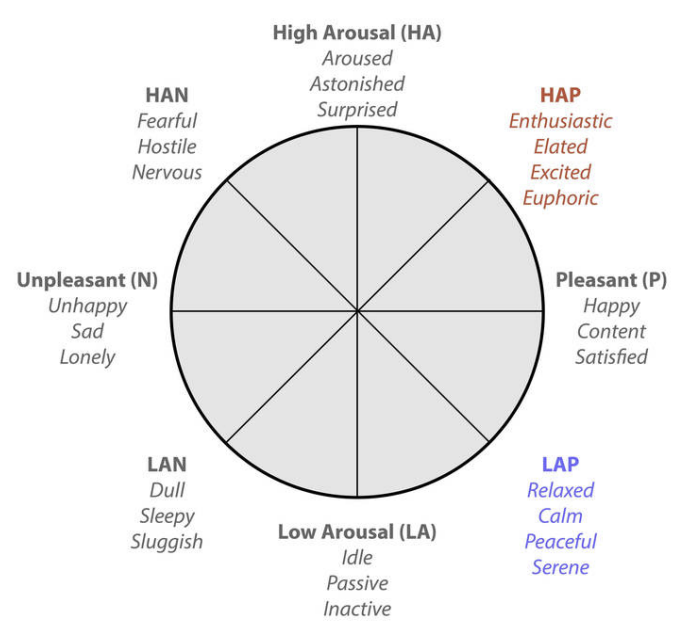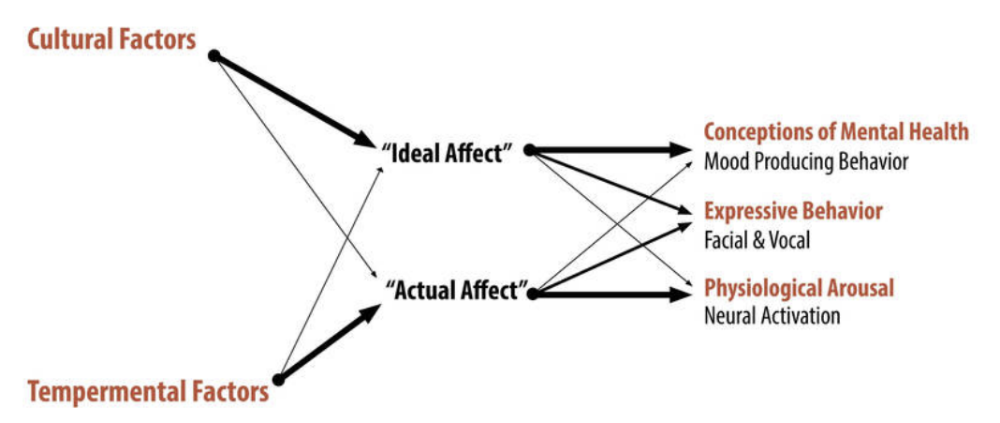1
The role of emotions in the function of culture

2
Cultural display rules
- rules that are learned early in life that specify the
management and modification
of emotional expressions (social circumstances) - can work in several different ways.
3
Cultural display rules examples
- people express emotions
“as is” (i.e., as they feel them), to....- exaggerate their expressions to show more than what
is
actually felt
- exaggerate their expressions to show more than what
is
- to tone down their
expressions
- show less than what is actually felt,
- to conceal their feelings
- expressing something else, or to show nothing at all.
4
Interpersonal
- relationship or interaction between two or more individuals in a group
5
Impact of interpersonal relationships
- interpersonal functions of emotion refer to the effects of one’s emotions on others, or to the relationship between oneself and others.
6
Intrapersonal
- what occurs within oneself
7
Intrapersonal and emotion
- functions of emotion refer
to the effects of emotion to individuals that occur physically inside their bodies and psychologically inside their minds.
8
Society
- refers to a system of relationships between individuals and groups of individuals
9
Cultural
refers to the meaning and information afforded to that system that is
transmitted
across generations
10
Social and cultural (functions of emotion)
- the effects that
emotions have on the functioning and maintenance of societies and cultures.
11
Social referencing
- the process whereby individuals look for information from others to clarify a situation, and then use that information to act
12
Social referencing and decisions
- individuals will often use the emotional expressions of others as a source of information to make decisions about their own behavior.
13
2D Map of Affective States

14
Ideal Affect vs. Actual Affect

15
Affect (2 Dimensions)
- arousal
- valence
16
Affect (arousal)
- high arousal-positive states refer to excitement, elation, and enthusiasm.
- Low arousal positive states refer to calm, peacefulness, and relaxation.
- “actual affect” refers to the states that people feel, “ideal affect” refers to the states that people ideally want to feel
17
Culture
- Shared, socially transmitted ideas (e.g., values, beliefs, attitudes) that are reflected in and reinforced by institutions, products, and rituals.
18
Emotions
- Changes in subjective experience, physiological responding, and behavior in response to a meaningful event.
- occur on the
order of seconds (in contract to moods
which may last for days).
19
Feelings
- describe a wide range of states that include emotions, moods,
traits
and that typically involve changes in subjective experience, physiological responding, and
behavior in response to a meaningful event - Emotions = order of seconds
- Mood = last for days
- Traits = tendencies to respond a
certain way across
various situations.
20
Independent self
- A model or view of the self as distinct from others and as stable across different situations.
- Goal = to express and assert the self, and to influence others.
- prevalent in many individualistic, Western contexts (e.g., the United States, Australia, Western Europe)
21
Interdependent self
- A model or view of the self as connected to others and as changing in response to different situations.
-
goal = to suppress personal preferences and
desires,
and to adjust to others. - prevalent in many collectivistic, East Asian contexts (e.g., China, Japan, Korea)
22
Social constructivism
- proposes that knowledge is first created and learned within a
social
context and is then adopted by individuals.
23
Universalism
- proposes that there are single objective standards, independent
of culture, in
basic domains such as learning, reasoning, and emotion that are a part of all human experience.